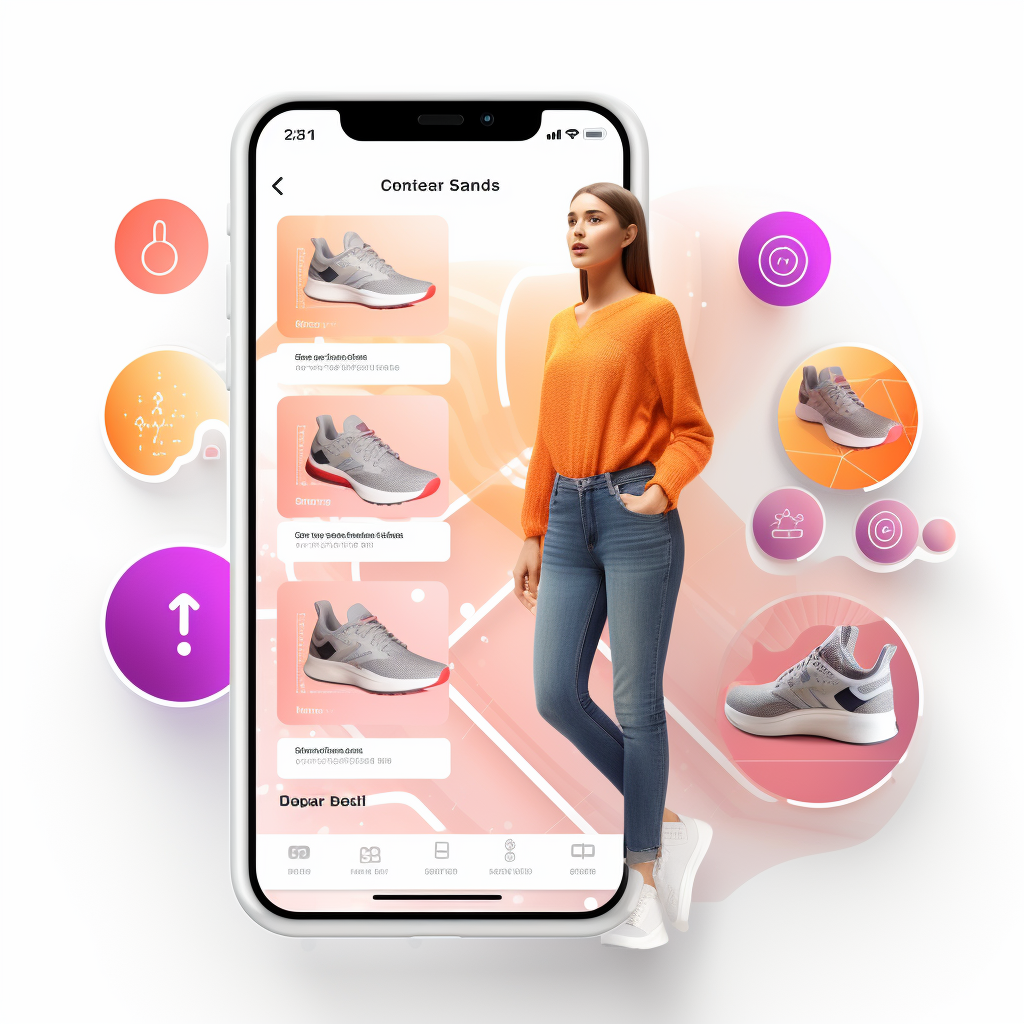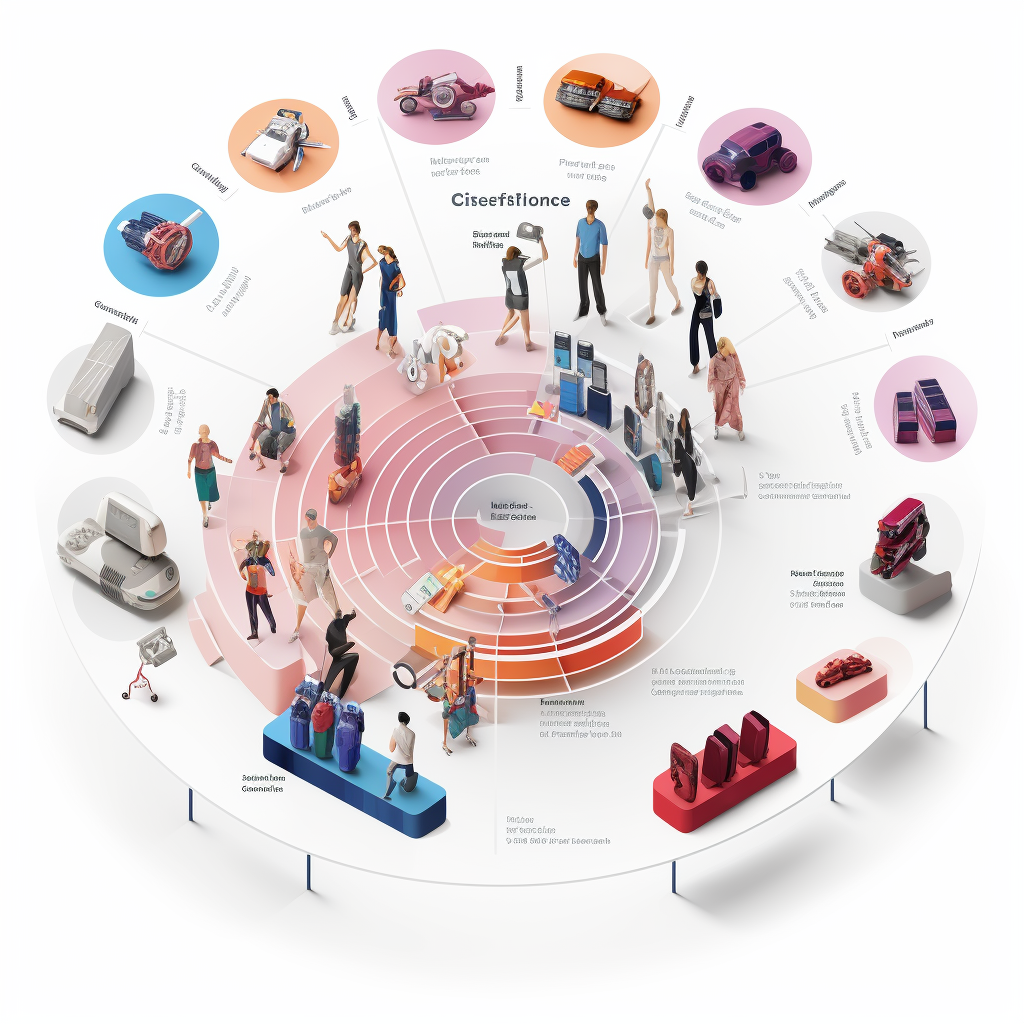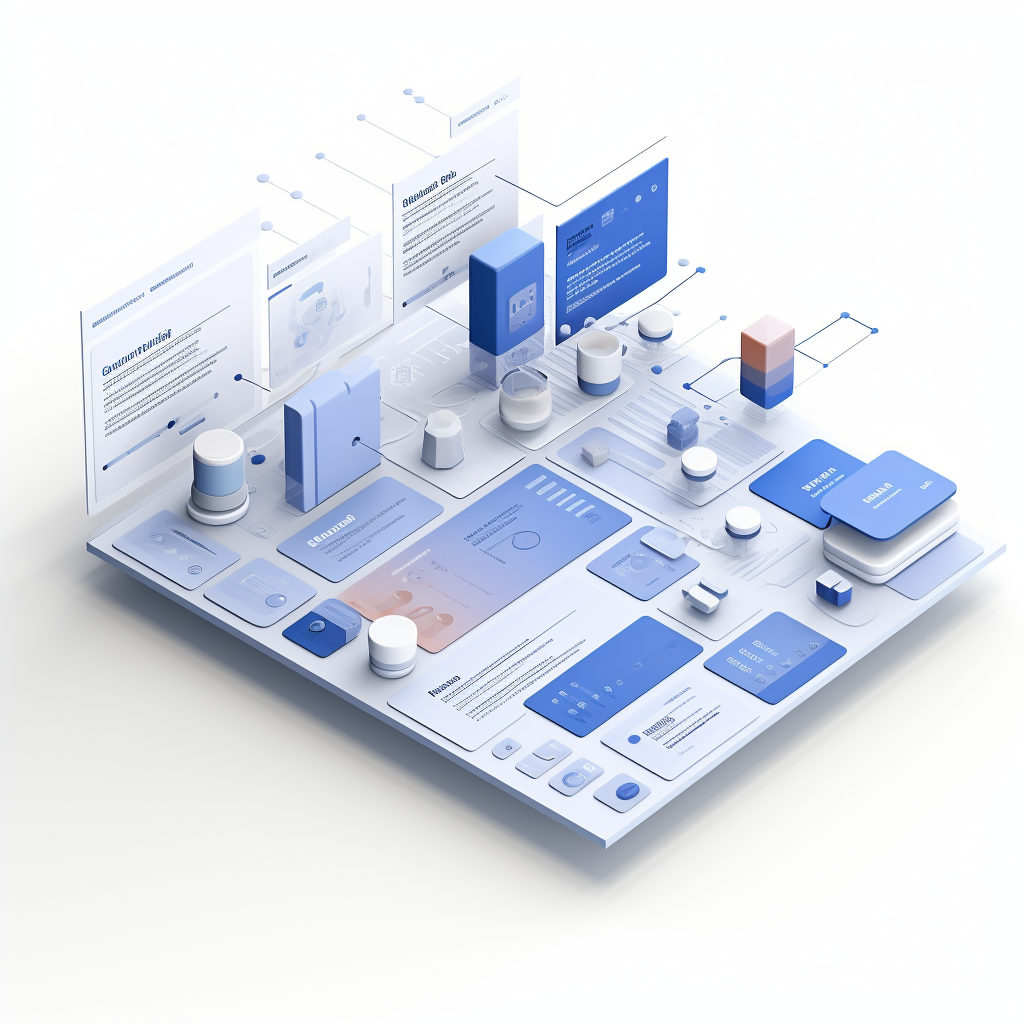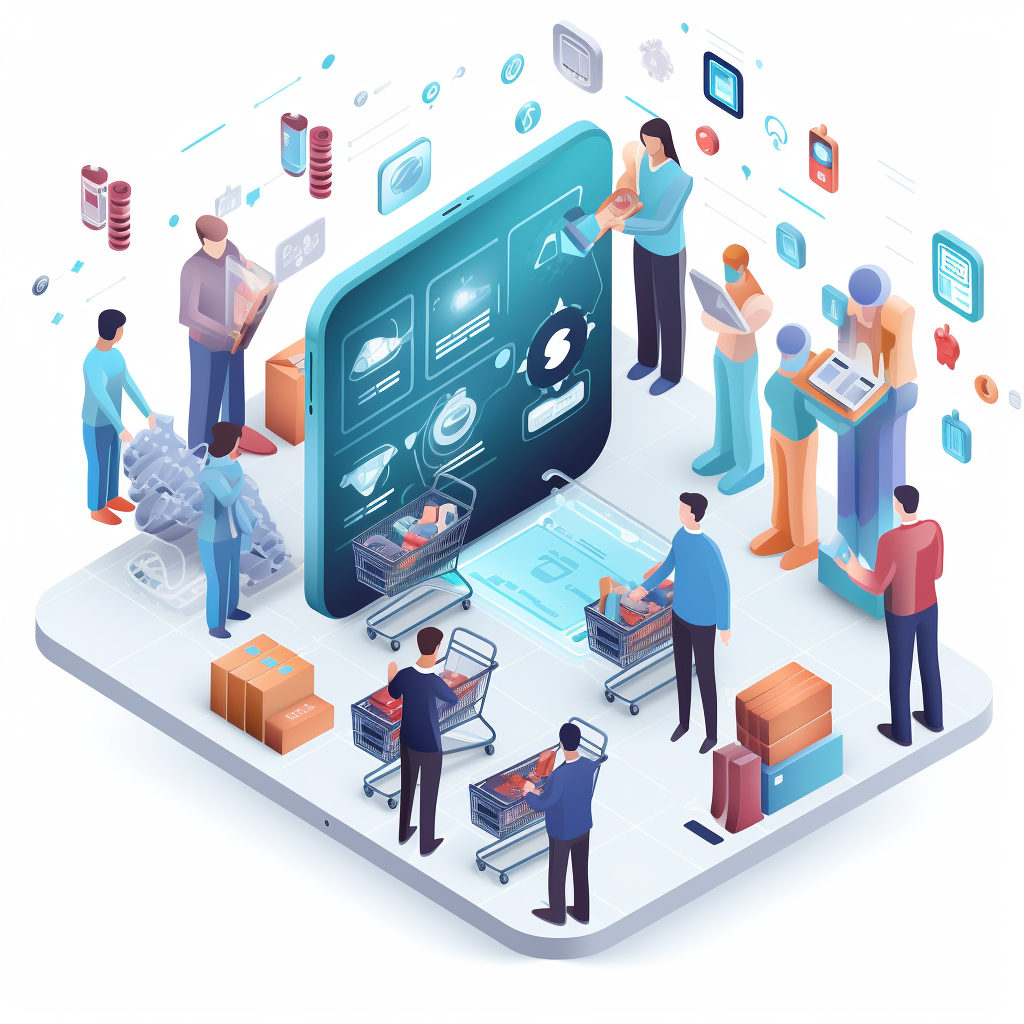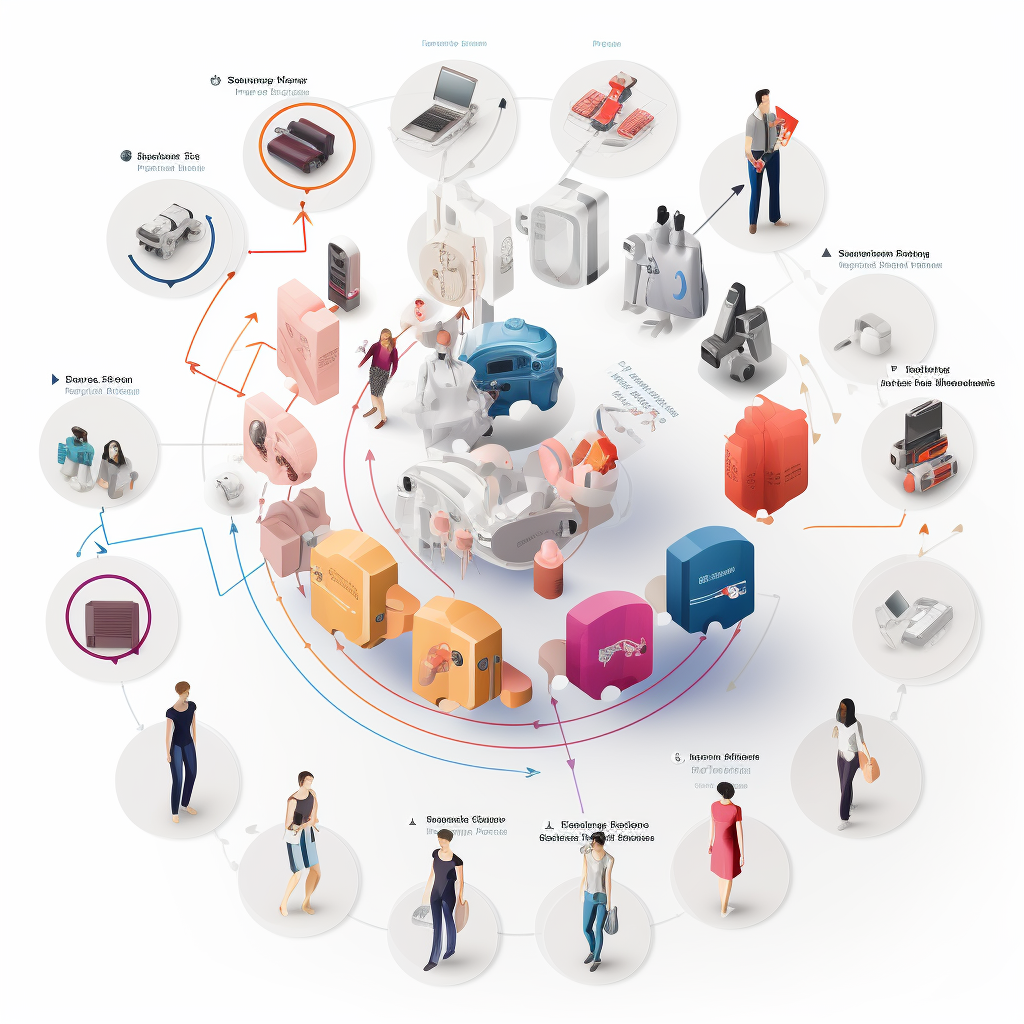Unlocking Customer Insights: The 10 Key Benefits of Assigning Buyer Personas to Products in Your Online Store
In the age of digital retail, personalization is king. One of the crucial tools in this regard is the development and application of 'Buyer Personas'.
We have developed a proprietary, detailed taxonomy of 1820 Buyer Personas that can be assigned to individual products in your online store, see our list of Buyer personas here.
By using our advanced AI tool for assigning specific buyer personas to each product in your online catalog, you can gain unparalleled insights into your customers’ behavior and preferences.
Here are 10 compelling advantages of this strategy for online store owners:
If implementing our AI services results, this would mean that when a user which has as top user persona the "Eco Conscious Shopper" is visiting certain product, he is presented with product description that highlights aspects of this buyer persona, for example: "This product is made from recycled materials, is 100% recyclable, and is produced in a factory that uses only renewable energy sources".
We invite you to check out or free demo where you can enter any product description, our AI service will then determine the relevant buyer personas, and produces rewritten product descriptions for each of buyer personas.
In today’s competitive e-commerce landscape, where customers are inundated with choices, personalization isn’t just a nice-to-have; it’s a must. And that’s exactly what implementing buyer personas at the product level can help you achieve – a personalized, data-driven approach that puts your customers at the center of your business strategy.
We have developed a proprietary, detailed taxonomy of 1820 Buyer Personas that can be assigned to individual products in your online store, see our list of Buyer personas here.
By using our advanced AI tool for assigning specific buyer personas to each product in your online catalog, you can gain unparalleled insights into your customers’ behavior and preferences.
Here are 10 compelling advantages of this strategy for online store owners:
1. Enhanced Customer Profiling
When a shopper checks out or makes a purchase on your site, the products in their basket aren’t just sales – they’re data points. By associating products with specific buyer personas, you can start to build a dynamic profile of each customer based on the products they engage with. This could reveal, for example, that a customer is 54% Eco Conscious Shopper’, 24% ‘Tech-Savvy Professional’, 22% ‘Budget-Conscious Student’, 8% ‘Digital Photographer’, etc. This level of insight is gold dust for marketers and can inform highly targeted future interactions.2. Personalized descriptions
One of the significant advantages offered by knowing users buyer personas profile is providing them for each product with product description, that is tailor made to user's buyer persona, thereby increasing resonance with product message, conversion and sales.If implementing our AI services results, this would mean that when a user which has as top user persona the "Eco Conscious Shopper" is visiting certain product, he is presented with product description that highlights aspects of this buyer persona, for example: "This product is made from recycled materials, is 100% recyclable, and is produced in a factory that uses only renewable energy sources".
We invite you to check out or free demo where you can enter any product description, our AI service will then determine the relevant buyer personas, and produces rewritten product descriptions for each of buyer personas.
3. Improved Product Recommendations
With a clear understanding of the different personas that a customer aligns with, your store can offer more accurate and appealing product recommendations, increasing the likelihood of additional purchases.4. Streamlined Inventory Management
Knowing which buyer personas are most common among your customers helps you anticipate demand for certain products. This can inform your stock purchasing decisions, reducing the chances of overstocking or understocking.5. Optimized Pricing Strategies
With insights into the budget constraints and spending habits of your buyer personas, you can develop pricing and discount strategies that are tailored to different customer segments, maximizing revenue and profitability.6. Enhanced User Experience
Using buyer personas to inform your website design can result in a more intuitive and enjoyable shopping experience. For example, you might create personalized landing pages or navigation paths for different personas.7. Informed Product Development
By understanding the needs and preferences of your buyer personas, you can identify gaps in your product range and develop new products that are directly aligned with your customers’ desires.8. Data-Driven Decision Making
Implementing buyer personas for individual products allows you to collect rich, actionable data. This empowers you to make strategic decisions based on actual customer behavior, rather than assumptions.9. Increased Customer Loyalty
Personalization, driven by understanding your buyer personas, shows customers that you understand and value their unique needs and preferences. This can significantly increase customer satisfaction and loyalty.10. Competitive Advantage
In a crowded online marketplace, offering a personalized shopping experience can set your store apart from competitors. By using buyer personas effectively, you can offer a level of service that others may not be able to match.In-Depth Exploration:
Let’s dive deeper into a few of these advantages.Enhanced Customer Profiling:
When a customer completes a transaction on your website, the items in their shopping cart represent more than just revenue – they are valuable pieces of information. By linking these purchased products to distinct customer personas, you can begin to craft a detailed and evolving portrait of each shopper based on the items they choose. This analysis might unveil, for instance, that a particular customer aligns 70% with the 'Health-Conscious Parent' persona, 20% with the 'Eco-Friendly Advocate', and 10% with the 'Adventure-Seeking Traveler'. Such granular data is a treasure trove for marketing teams, empowering them to design exceptionally tailored future engagements.Effective Personalized Marketing:
Imagine you’re running a promotion on high-end camera equipment. Rather than sending this promotion to your entire email list, you can use your buyer persona data to identify customers with a high percentage match to the 'Professional Photographer' persona. By targeting your marketing in this way, you’re not only more likely to achieve higher conversion rates, but you’re also avoiding potentially alienating customers who have no interest in these products.Streamlined Inventory Management:
If your ‘Fitness Enthusiast’ persona is consistently associated with high sales volumes, this is a clear signal to ensure that products matching this persona are always well-stocked. On the flip side, if your ‘Vintage Audio Collector’ persona is representing a smaller portion of your customer base, you may decide to stock fewer products associated with this persona, minimizing the risk of overstocking.Optimized Pricing Strategies:
Insights into the budget constraints and spending habits of your buyer personas are invaluable for crafting effective pricing strategies. For example, you might offer loyalty discounts to your 'Value-Driven Shopper' persona to encourage repeat business, or premium packages for the 'Luxury Lifestyle Enthusiast' persona. These tailored approaches can help to maximize both revenue and profitability.Enhanced User Experience:
Utilizing buyer personas to guide your website design can lead to a significantly improved and personalized shopping experience. For instance, you could design custom landing pages that immediately resonate with different personas. A 'New Parent' persona might be directed to a page featuring baby products and parenting tips, creating a welcoming and relevant experience from the first click.Informed Product Development:
Understanding the specific needs and preferences of your buyer personas allows you to identify potential gaps in your product offerings. For example, if you discover a significant 'Eco-Friendly Advocate' customer segment, you might consider expanding your range of sustainable and environmentally-friendly products. This ensures that your product development efforts are precisely aligned with your customers' desires, increasing the likelihood of successful product launches.Data-Driven Decision Making:
Incorporating buyer persona data into your strategic planning provides a robust foundation for making decisions. Rather than relying on gut feelings or broad market trends, you can analyze concrete data about your actual customers. For example, if data shows a growing segment of 'Home Gardening Enthusiasts', you might decide to increase your inventory of gardening supplies in anticipation of rising demand. This data-driven approach leads to more informed, targeted, and effective business strategies.Conclusion:
Implementing buyer personas for individual products on your online store is not just a theoretical exercise; it’s a practical, powerful strategy that can drive tangible benefits for your business. From sharpening your marketing focus to optimizing your inventory and enhancing the customer experience, the advantages are clear and compelling.In today’s competitive e-commerce landscape, where customers are inundated with choices, personalization isn’t just a nice-to-have; it’s a must. And that’s exactly what implementing buyer personas at the product level can help you achieve – a personalized, data-driven approach that puts your customers at the center of your business strategy.

